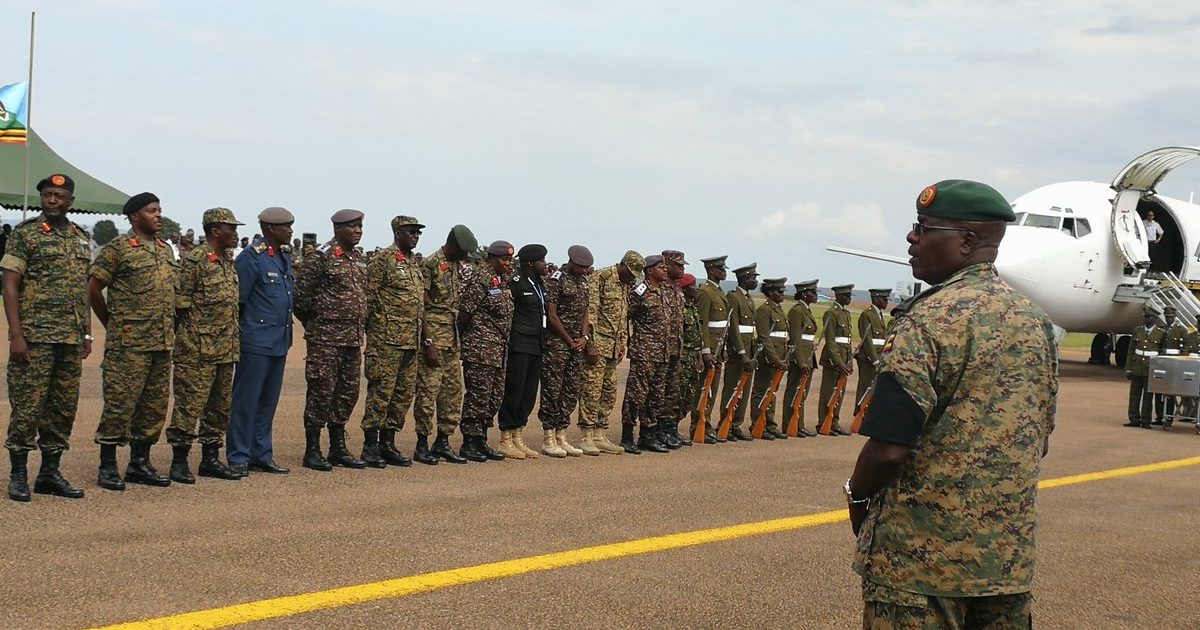The Ministry of Defence and Veteran Affairs has started the massive salary enhancement plan for members of Uganda People’s Defence Forces (UPDF), in a move that would cost taxpayers Shs2Trn.
The details were disclosed in a meeting held last week between officials of Ministry of Defence and Internal Affairs and lawmakers on the Committee of Defence and Internal Affairs where the officials had been summoned to respond to some of the concerns raised during the scrutiny of the 2023/2024 National Budget Framework Paper.
Vincent Ssempijja, Minister of Defence and Veteran Affairs revealed that by 2025, Ministry of Defence intends to implement the 100% salary increment of all officers in five phases, following the approval of the salary enhancement plan by Ministry of Public Service in July 2017.
The Minister revealed that the first Phase started in 2018/2019 with the enhancement of salaries of Privates to Captains costing taxpayers Shs62.950Bn, while the second phase in 2022/2023 is for General Officers and senior officers up to the rank of Majors costing Shs90.139Bn, while phase three targets to enhance lower cadre ranks at the cost of Shs427.767Bn.
“However it should be noted that the enhancement of General up to senior officers done in 2022/2023 worth Shs90.139Bn isn’t provided in the budget of FY2023/2024 yet. Therefore the total requirement for enhancement of 2023/2024 is Shs515.9bn,” said Minister Ssempijja.
He further explained that Phase 4 will be in FY2024/2025, and this will target enhancement of officers from Major to Colonel and lower cadre ranks to bring them in tandem with the salary structure of general officers and this will require additional Shs403.218Bn and phase 5 in 2025/2026 will see the full implementation by enhancing all ranks to attain the target payable and this will require Shs1.097Trn.
However, some MPs like Godfrey Wakooli (Butiru County) tasked the Minister to clarify on the criteria used on determining on how much to increase on a certain rank, wondering why captains had their salaries increased by merely Shs32,100, yet the generals will have their pay increased from Shs2M to Shs12.46m.
“Can we know whether the increment was in percentage of what somebody has been earning that we shall add Shs200,000 so that we can see the chronological way of determining this and whether it was proportional because someone from Shs2M to Shs14M then another one from Shs800,000 to Shs844,000, what was the criteria?” Wakooli asked.
Minister Ssempijja informed the Committee that the salary structure was approved by the Ministry of Public Service which also proposed to have the salary of Chief of Defence Forces (CDF) elevated from the current Shs2M and have it equated to that of a permanent secretary of Shs15m.
The Minister’s response was however rejected by Jonathan Odur (Erute South) arguing that the concern is about the pay but rather the rationale used.
He said: “We are questioning the decision where you want to go to Shs15M for the CDF, but the percentage increase and we are looking for why you would increase another by 80% and another by only 1%? The pay target, me I’m satisfied with it, if you are going to increase the percentages, what is the rationale meaning for increasing some by up to 300% and yet in my thinking, you could have spread and said, we are going to increase by 40% so that everyone moves proportionately. So it is the proportionality of the increment that we are questioning not the pay structure.”
State Minister for Defence, Marksons Oboth defended the inconsistency in enhancement arguing that doing so would cause problems within the Army and the disparities are operational tactics used in the army.
“There is no way we could make it consistent. In the military, when you make it so clear like that, you are going to cause problems. The reason the disparities are there is that at the end, the target is 100%, so it is more of an operational matter than a practical matter. These are operational policy matters that have to be scattered. It is an operational matter, it isn’t because we don’t want to make consistent figures,” said Oboth.





